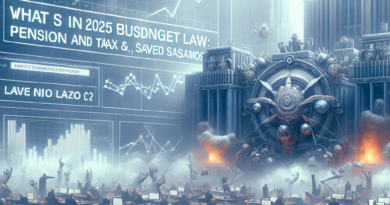Paychecks, forget about how much you earn today. Pay cuts are on the way.
The Challenge of Avoiding Salary Cuts: Government’s Dilemma
As the next year approaches, the government faces a tough challenge: avoiding salary cuts.
Currently, there are two measures in place to support the purchasing power of salaries.
On one hand, there is a tax break for incomes up to 35,000 euros (which also includes benefits for mothers), and on the other hand, there is a three-tier income tax system.
Depending on the earnings, these measures provide an increase of up to 1,000 euros per year, but it’s not guaranteed that this boost will be sustained next year.
Despite repeated assurances from the Meloni government, the confirmation of these measures for the upcoming year will depend on the budget constraints that need to be respected in the next financial plan.
Risk of Not Confirming Salary Increases
Recently, the EU initiated an infringement procedure against Italy due to excessive deficit, a decision that was anticipated but underscores the government’s need to be cautious with its finances in the upcoming Budget Law.
By September, the government is required to outline a multi-year plan to contain primary current expenditure and secure funding sources for measures like tax breaks introduced to support salaries.
Confirming these interventions in the 2025 Budget Law will require between 18 and 20 billion euros, with the government having around 20 to 24 billion euros at its disposal.
These financial constraints make the continuation of tax breaks far from certain.
The Debate on Salary Cuts
The tax relief represents a temporary measure that cannot be sustained indefinitely.
Annual funding of approximately 10 billion euros and the potential negative impact on the labor market have raised concerns about making this relief a permanent feature.
Institutional warnings emphasize the risks of structuralizing the tax relief, as it could create a poverty trap.
Despite providing short-term benefits, the long-term implications on public finances could be detrimental.
While the tax breaks have increased some workers’ income by over 1,000 euros annually, questions remain about the trade-offs and the sustainability of the measure.
The potential benefits seem to be more political than economic, raising doubts about the long-term viability of this approach.
Future Scenarios
The uncertainty surrounding the continuity of tax breaks highlights the need for a well-thought-out strategy for financial stability.
The government must decide whether to extend these measures, facing the challenge of balancing short-term benefits against long-term fiscal responsibility.
Ultimately, the path chosen will have consequences not only for 2025 but for the years to come, requiring a proactive approach to address the challenges of fiscal sustainability while supporting workers’ welfare.




